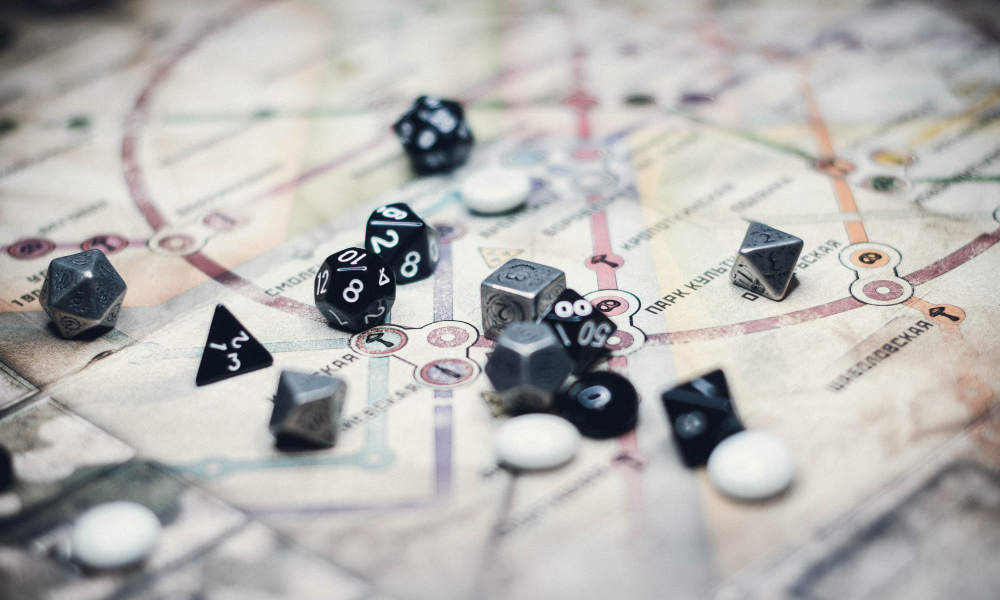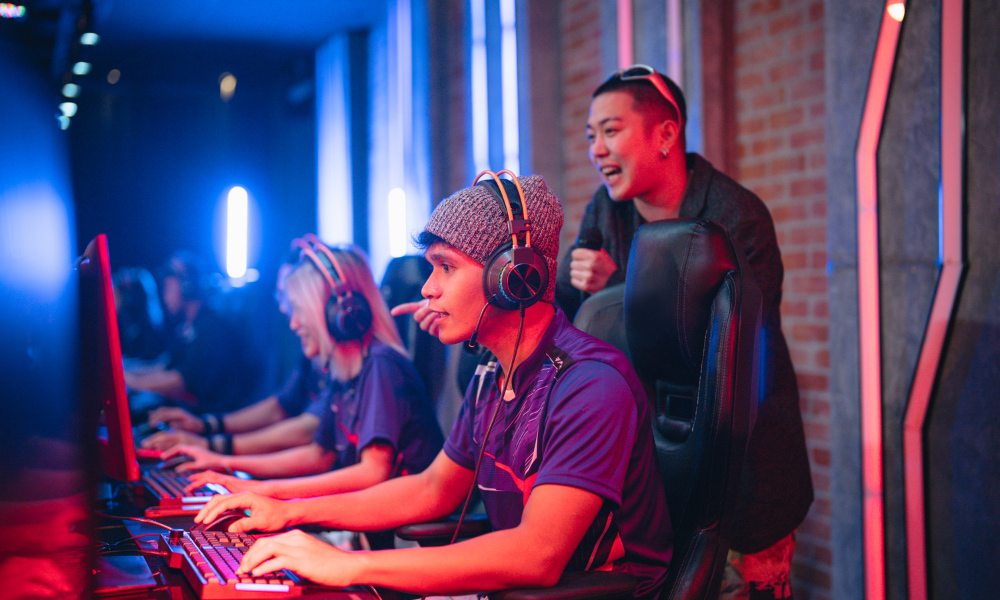Tips
Tips to Beat Your Friends in Online Board Games — Real Strategies for Mobile Gamers
Ready to outsmart your friends in online board games? Discover real strategies and actionable tips to dominate every match and turn game nights into victories.
Advertisement

If winning friendly matches fuels your mobile gaming spirit, you’re not alone. Nothing compares to that lighthearted thrill after outsmarting friends in a round of online board games—except maybe plotting your strategy for the next rematch.
Board games have shifted from kitchen tables to screens, energizing both casual and competitive gamers alike. Mastering online board games develops skills beyond luck: and these can translate into sharper thinking, social fun, and memorable victories, all right from your phone.
This guide reveals techniques real players use daily, so you can overcome tricky rivals and rack up game-night wins. Dive in to pick up actionable methods for dominating your next digital gathering.
Strategic Thinking Leads to Consistent Wins
Thinking several turns ahead creates repeatable victory patterns in online board games. Planning your moves, calculating potential risks, and picturing your friends’ reactions unlock deeper layers of gameplay every match you play.
Instead of acting on impulse, start anticipating board changes and adjust as new information appears. This habit, practiced during every session of online board games, minimizes careless slipups and enables smarter, faster decisions against your closest competitors.
Read the Board Like a Pro
Train your eyes to scan the board for patterns before acting. Notice clusters of pieces, likely moves, and empty spaces—these offer clues for your next step. Picturing game states a few moves out can reveal hidden opportunities, just as a chess player watches for checkmate setups.
Try narrating quietly, “If they move here, I’ll go there.” This verbal preview locks in the logic, helping you spot options others might miss. Practice this in casual rounds to build confidence before high-stakes games. Use it especially in online board games that reward prediction skills.
With repetition, this visual approach becomes second nature. Over time, you’ll find patterns earlier and impress your friends with tactical surprises.
Spotting Weaknesses in Opponent’s Play
Notice if your friend habitually ignores one part of the board or makes rushed turns on mobile. Mark down the areas they let slip—these become your entry points for a late-game reversal or an early momentum grab. Keep a mental log to prepare specific counters.
If someone chats while playing or hesitates at certain board positions, interpret this as hesitation. Push your advantage at these moments—they’re visible tells in online board games that signal where to press your strategy.
Announce your calculated moves audibly in group chat, saying, “I noticed you didn’t block here—guess I’ll take this spot,” and watch the mood shift. Others will play tighter—giving you more predictable moves to exploit next.
| Game | Strategic Focus | Opponent Tell | Next Action |
|---|---|---|---|
| Chess | Board patterns | Faster moves on flanks | Pressure ignored queen-side |
| Catan | Resource tracking | Holds too many cards | Block key trades |
| Monopoly | Property sets | Reluctant trading | Push for auction bargains |
| Ticket to Ride | Route blocking | Favors long tracks | Cut off obvious line |
| Scrabble | Word placement | Long pauses mid-turn | Use bonus tiles quickly |
Improving Timing and Resource Management Each Game
Prioritizing your timing and monitoring in-game resources is crucial for shifting momentum in mobile board games. A calculated delay or well-timed action can create breathing room—or suddenly swing the advantage in your favor.
Online board games reward patient analysis, especially when watching resource trends. Let your friends rush; you’ll capitalize on their haste by waiting for the opportune moment, then making your decisive move with maximum effect.
Recognizing the Value of Every Turn
In online board games, each turn offers more than a move. Think: “If I delay, does my hand improve later?” Create a habit of asking yourself before clicking. Patience, mixed with keen resource planning, keeps you poised for the game’s turning point.
- Track Card Counts: Know what’s left in your deck or hand. You’ll spot when to press or stall, sidestepping traps or setting up combos, as in digital Uno.
- Monitor Others’ Resources: Watch what rivals earn or spend. If someone hoards coins, keep your abilities ready for a surprise challenge in the next round.
- Match Your Speed to Game State: Speed isn’t always power. Sometimes, delay to observe chat chatter, as impulsive comments reveal priorities.
- Don’t Waste Free Actions: In board games like online Monopoly, use free moves to grab extras. Little resource gains now build to greater choices midgame.
- Call Out “Risk Moves”: Announcing a risky play in group chat can disrupt your friends’ plans. It shifts their focus—letting you quietly prep stronger combos for later turns.
Don’t rush those critical turns. Treat them as springboards and build your future advantage, with every click getting you closer to a big win.
Choosing When to Play for Disruption
Sometimes, your friends expect straightforward moves, but disruption makes you unpredictable. Learn to upend routines: break expected sequences, swap resources rapidly, or pass when everyone’s bracing for retaliation.
- Delay Obvious Attacks: If everyone expects you to claim a high-value spot, choose a lowkey area instead. It muddles group expectations so your next major push lands unnoticed.
- Call Attention to Non-Threats: Shift the chat’s focus onto someone else, saying they’re “the real threat.” This misdirection buys you breathing room for sneaky plays.
- Force Trades You Don’t Want: Offer obviously weak deals first. It lures out your rivals’ true goals, so when you do negotiate seriously, you’ve got extra knowledge to leverage in online board games.
- Pass When Expected to Act: If the group thinks you’ll challenge a leader, pass once. When you do confront them later, it’s less anticipated and more effective.
- Stack Your Power-Ups: Save two strong plays for back-to-back turns. This flurry throws off your opponents’ timing while reclaiming board control dramatically.
Disruption works best when you blend it subtly into your overall approach, so use it as seasoning rather than the main course, for consistently beating friends online.
Building Better Communication During Game Nights
Rich conversations, clever banter, and social cues amplify your impact in online board games. Treat every message and emoji as a chance to read the room—and shape others’ reactions.
Sending Clear Signals to Influence Play
Send specific hints in chat, like, “Looks like you need that card—sure hope I don’t block you…”. Light teasing pushes friends to telegraph their strategies, especially when emotions rise after risky turns in online board games.
React quickly to big moves. For instance, when someone lands a game-changing card, respond: “Nice! Was that luck or a setup?” This response encourages them to reveal their strategy, arming you for future turns.
Emojis aren’t just for jokes. A well-timed grin or wink signals confidence or misleads rivals. Use these reactions to influence the atmosphere, shifting focus where you want it, and setting up mind games for later rounds.
Reading and Using Group Dynamics
If players start ganging up, join alliances quickly. Whisper with others using DMs or private group chats: “Let’s keep the leader honest for a round or two.”
Notice when frustration builds. Pause and joke: “Okay, who’s stacking the deck?” Laughter helps reset tempers. If things get too competitive, show vulnerability: “No way I’m winning this time,” defusing tension and drawing out bolder plays from others in the match.
Encourage non-leaders to rally together now and then. If the underdog wins, you can claim partial credit for teamwork—and next match, folks may be eager to join forces with you again.
Sharpening Pattern Recognition Through Practice Routines
Practicing regularly in online board games sharpens your eye for developing patterns and common traps. Review past sessions and replay scenarios that tripped you up to identify exact improvement points.
Setting Up Short, Focused Drills
Set aside ten minutes a day to replay just the opening phase of games. Run different openings: try aggressive, defensive, and balanced starts. Write down which scenarios give repeated trouble, then experiment to see how minor tweaks alter your results next time.
Sprint through one type of puzzle—for example, solve three online Sudoku boards in succession, keeping score on mistakes. This practice targets weak spots, converting small mishaps into pure learning.
Stop your practice when you consistently win three-in-a-row, then end with a short review, jotting the best tactic you discovered. These sprints stack up, improving muscle memory and mental agility in all mobile board game matches.
Building Up to Complex Scenarios
After getting comfortable with openings, level up practice by replaying midgame scenarios. Set challenges: “Win from this losing position,” or “Survive five turns without using my strongest card.” Switch up opponents by inviting friends (or bots) to keep your responses adaptable.
Time yourself making decisions, increasing speed gradually without sacrificing accuracy. If you stumble, pause and analyze: what pattern did you miss? This cycle drills in quick, effective recognition of winning patterns in actual games.
Integrate real-life analogies: visualize each board game as a city map. Just as locals spot shortcuts after driving the same route daily, you’ll start to see fast tracks to victory after repeated rehearsal online.
Last Word: Turning Every Match into a Learning Moment
Every round of online board games teaches something new. From strategy tweaks to reading digital table talk, each session leaves clues for the next win. Apply what you spot, and share lessons with your friends to keep the rivalry positive and spirited every time.
Your first few wins build confidence; your next set comes from sharpening these concrete habits. Pattern recognition, resource tracking, and effective communication become your best digital teammates—no matter the online board game or the foe sitting across the screen.
Stay observant, treat every loss as a puzzle, and challenge your group to inventive rematches. With each online board game, you’re not just playing—you’re growing as a strategist, one win at a time.

How to Level Up Quickly in RPG Games
Level up RPG games faster by setting goals, tracking progress, and focusing on high-yield tasks. Maximize rewards and avoid burnout!
Trending Topics

Women in eSports: Challenges and Notable Achievements
Women in eSports are making an undeniable impact, challenging stereotypes and shaping the future of mobile gaming with skill, strategy, and leadership.
Keep Reading
Virtual Reality Games for Sports Enthusiasts
Discover the top virtual reality sports games for active, immersive experiences that challenge your reflexes and skills.
Keep Reading
The Rise of eSports: The Future of Competitive Gaming
The rise of eSports has transformed competitive gaming into a global movement, driven by teamwork, technology, and community.
Keep ReadingYou may also like

How to Optimize the Performance of Your Mobile Games on Android and iOS
Optimize your device for smoother, faster mobile gaming with these simple tweaks—lower graphics, manage battery, and control notifications.
Keep Reading
What to Do When You Encounter a Cheater in an Online Game
Learn how to spot and handle cheaters in mobile online games, ensuring fair play and improving your gaming experience.
Keep Reading
The 5 Biggest eSports Tournaments You Need to Know
eSports tournaments like The International and Fortnite World Cup define the scene with huge prizes, global fans, and epic gameplay.
Keep Reading